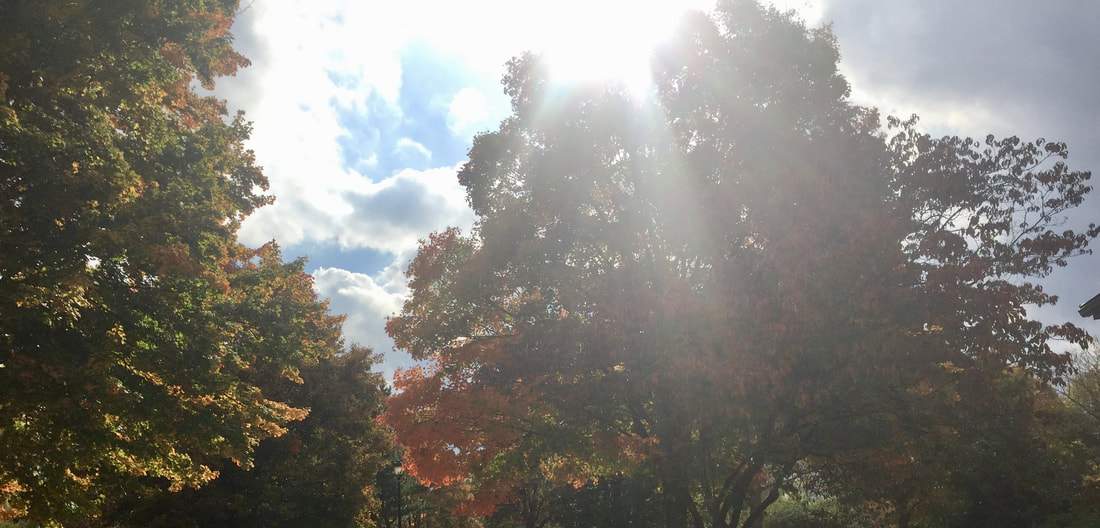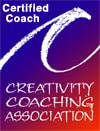|
The more you repeat something, the more ownership you take of it. The more ownership you take of something, also known as the ownership effect, the more invested in and valued is that thing. This applies to new skills learned in therapy.
One of the most frequent things I hear from therapy patients about a new learned therapy skill, is that it “doesn’t work.” Very often, after more exploration, what I find is that the patient hasn’t tried the skill “enough.” They have tried it once, maybe even twice, but have not repeated it daily, let’s say, for a week or more, however long it might take for that skill to take effect. I will give you an example. Have you ever loaded the dishwasher, folded a towel, or done another chore so often, that you have your own way of doing it? Have you ever gone behind someone else, to “correct” them and fix it to your way? With that chore, you have repeated that behavior often enough that you feel ownership of it. So much so, that you feel invested in the way that it is done, and value it being done correctly. You may even get a feeling of pride or satisfaction from doing it. The ownership effect is a phenomena tried and true in psychological research, and is used throughout the world of health, marketing and even business. Have you ever worked for a company that offered you company shares as part of your compensation? They are hoping to take advantage of the ownership effect, to make you feel more emotionally invested in their company (if you “own” some of it, you will work harder for it!) As your therapist, I want you to similarly take ownership of, and feel emotionally invested in your life, and the tools you learn in session to create your happiest self. For you, this means repetition. When you learn a new skill, let’s say, meditation, you need to repeat it and practice it again and again until it feels like yours. Only then will the ownership switch flip in your brain, helping you feel invested in the tool. Then you will naturally use it in the best possible ways to improve your life. The bad news is: when you are learning something new in therapy there will be a curve, or a period of time during which you put yourself through the motions just for repetition’s sake. The good news is: after doing this enough, you will automatically begin to know how to best use and apply the tool and begin to organically see positive change in your life. So, dear creatives, when you get a new skill, try it, and try it again. Talk to during session about the difficulties you have with practicing the skill and fears you have about its benefit. Be patient with yourself as you learn, and prepare yourself to see the magic you can create in your own life! (c) 2017 Creatively, LLC Have you ever had someone ask you if you remember something about your past, only to come up empty? Has this happened to you more than once? Does it happen all the time? Reflect on your life. When did you have periods of stress? Were they moments, months, years, or longer? Do these periods correspond with some missing memories? Your memories may be missing because of stress.
Apart from extreme stress situations (like trauma, which our brain processes differently altogether) or lower stress situations (like waiting in a long line at the store, which may be below threshold to have much of an impact long term) moderate to high levels of stress can impact both how we create and retrieve memories. Part of the reason for this relationship has to do with stress hormones in our bloodstream. When we are stressed, stress hormones are released, and over-secretion of stress hormones can impair memory. For example, cortisol, a biomarker for stress, when present in excess in the bloodstream can block the hippocampus in the brain from storing events as they happen, and from recalling them later on. Stress hormones can also take energy from the brain by diverting glucose, an energy molecule, to your muscles. Over time, if this pattern continues (e.g. in cases of chronic stress) the brain can re-wire itself and affect both the way we remember and the way we think long term. Ok, so this applies to you. What can you do with this information? Luckily, our brains are adaptive- you may have heard of this as “neuroplasticity.” Like roads that are built into superhighways due to increased traffic, the more we do something one way, the quicker and more solidified that pathway is in the brain. We can build new roads and turn them into highways by redirecting our “traffic.” In other words, we can train our brain to rewire by teaching it other ways to do something. That means if we learn to lower our stress level, we can help our brain become more effective at storing and retrieving memories. Your first step will be finding ways to be less impacted by stress. What are some techniques to accomplish this? Sometimes it is a matter of doing things differently. Other times we need to make bigger changes. Something we have explored in a previous news topic, is using mindfulness. Mindfulness helps us reduce stress by focusing on our present experience. By doing this, we are turning off our inner monologue and fully immersing ourselves in the moment. We can also use practices like meditation and deep breathing which biologically reduce chemical stress reactions in the body. When we are mindful, we use all five of our senses to experience something, and create an effectively stronger memory. For this reason, mindfulness also positively impacts our ability to make and retrieve memories. The combination of reducing stress and creating stronger memories through mindfulness can be a powerful start to re-wiring the way you interact with and remember the world around you. Explore in your next session how mindfulness and other techniques can help you reduce stress, make better memories, and create your best life! © 2017 Creatively, LLC An important facet of emotional health is good self care: the concept of deliberately spending time attending to your own needs. It is fundamental to your wellness and something you should do in some fashion daily. Part of therapy can be learning when and how to care for ourselves, and the signs we subconsciously give ourselves that self care is overdue. Today’s topic is two skills you can use to practice good self care. They are presented as exercises for you to try. As always, talk in session first before implementing a new skill about the benefits and risks, and how to maximize the effectiveness of the tool for you!
Today’s self care skills: Safe Place and Self Soothing. One of the challenges in our hectic lives is to find small moments of peace and happiness. Rather than wait for these moments to come to us, we can also learn ways to make them for ourselves. Two ways to do this are by creating a safe place and through self soothing. Try these exercises to get you started: Exercise 1. Making a safe place. Think of a time in your life when you were at peace. Where were you? Inside or outside? What was around you? Were there people there? What time of day was it? You can combine several peaceful experiences or just focus on one to answer these questions. What was it about your surroundings that made you feel at peace? The lighting? The smells? Were there specific items around you that made you feel peaceful? A tree? A stuffed animal? A candle? Use some extra paper to write or draw about your safe place. Fill it with as many peaceful things as you can. Are there any pieces of this you can recreate right now? If your safe place is at the beach, can you go outside? Can you light some candles or get a stuffed animal? Think about how you can recreate or find your safe place in your everyday life. Maybe you can actually go to your safe place every day, maybe you can spend time meditating and imagining yourself there. Think about ways to make this a part of your daily schedule. Exercise 2. Self soothing. This exercise is similar to the safe place exercise. It is based on mindfulness or appreciating the moment. The process is simple. Take each of your five senses, one at a time: sight, sound, smell, touch and taste. Think about things in each of the five senses that you like or that make you happy. Use some extra paper to make a list of things for each of the five senses. Take time to think about the little things that make you happy. Is it the sound of crickets or the rhythmic sound of a window fan? Do you like the feel of cold water on your hands or a soft blanket? What are your favorite tastes? Does the smell of freshly baked cookies make you happy? The list you make will probably be of everyday things. Some things on the list you may not have noticed before as things that bring you peace. After you are done making your list, go back through and circle things you can do every day. Can you turn your pillow over to the cold side and snooze five extra minutes in the morning? Can you have a bowl of your favorite cereal for breakfast? Think about ways to use your five senses and self-soothe as part of your daily schedule. (c) 2017 CREATIVELY, LLC It seems appropriate, during this time of year as we transition from Summer weather and schedules to Fall with a new school year and more, to discuss change. Specifically, dear creatives, how it applies to you and your creative personality. Creativity has been heavily researched in recent years and is often divided into several categories of interest- one of which is the creative personality. Some of my favorite research on the subject is by Mihaly Czsikszentmihalyi. In his work Creativity: The Work and Lives of 91 Eminent People, published in 1996, Cziskszentmihalyi talks about personality traits of creatives. Many of the traits he lists exhibit a type of dual nature: e.g. being both introverted and extroverted, or both high energy and reserved. In this case, both averse to and seeking change. For you, that means during a time of year such as this you may feel both energized and fatigued by change. Creativity is often related to novelty, and so it follows that change can give you new ideas and energy and be exciting. However, creative people tend to be very passionate people and so with change comes risk of new things that are either good or bad- and felt deeply in both cases. You may be excited for the changing seasons and new things this time of year may bring your way, while also feeling uneasy about the unknown. What to do? Unsurprisingly, I will of course always encourage you to be creative. Make new work, engage in your creative process and express the new emotions and ideas that come with change. Capitalize on the new energy and use it to temper any more negative feelings. Be careful and don't assume that “bad” is always “bad”- things are rarely all-or-nothing and tend to fall somewhere in between- looked at the right way, most things for you can be inspiring. Do you know for sure something is coming up this Fall that you are not looking forward to? This is also a natural part of life that your creative personality has strengths to help you overcome. Explore your feelings about change and this transitional time of year in your next therapy session, and learn more about how these themes apply to you! (c) 2017 CREATIVELY, LLC |
get more from The Creativity CoursesLiking educational topics and knowing what's hot in creativity? Creatively has online courses, with an interactive creative community, coaching sessions and more in the Creativity Courses. Want these blogposts in a newsletter? Subscribe here, and get a free gift. Cindy Cisnerosis a Creativity Coach, Creative Therapist and Professional Artist in Sykesville, Maryland. She is an expert straddling the realms of arts, creativity research, psychology, therapy, and coaching. She provides Online Creativity Counseling in Maryland and Virginia, and Online Creativity Coaching throughout the USA, Canada and the UK tailored for the discerning, imaginative, artistic, and neurodiverse. The information provided in this blog is from my own clinical experiences and training. It is intended to supplement your clinical care. Never make major life changes before consulting with your treatment team. If you are unsure of your safety or wellbeing, do not hesitate to get help immediately.
Archives
July 2024
|
|
Concierge Therapy for Creatives in Maryland
Creativity Coaching Worldwide including the USA, UK and Canada |
Telephone |
|





 RSS Feed
RSS Feed

